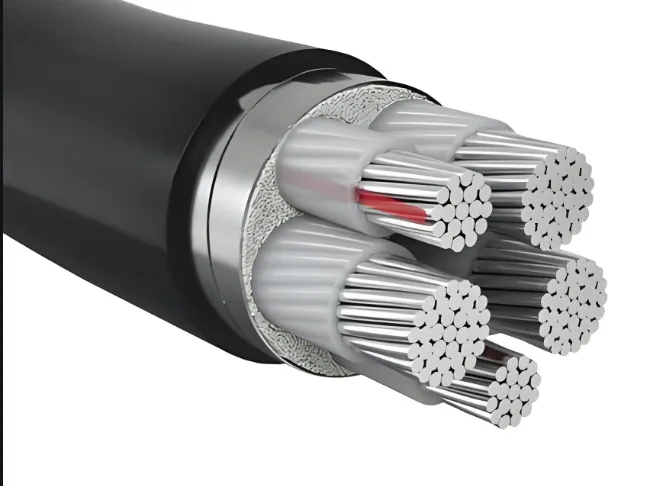Electrical Cable Standards in France
Time: 2025-04-18 15:09:33
Source: Henan Province Jianyun Cable Co., Ltd.
In France, electrical cables are subject to stringent regulations and standards to ensure safety, reliability, and compatibility with international norms. Understanding these standards is essential for designing and installing electrical systems in residential, commercial, and industrial projects. This article explores France’s electrical cable standards through three key questions, using a table to present information clearly and analogies to make concepts engaging.

Table of Contents
What Are the Main Standards for Electrical Cables in France?
The primary standard for electrical cables in France is NF C 15-100, the national regulation for low-voltage electrical installations, based on the International Electrotechnical Commission’s (IEC) IEC 60364 standard. France also adheres to European harmonized standards (EN) and IEC standards, with cables certified under the Norme Française (NF) mark to meet national requirements. These standards cover cable design, manufacturing, testing, and installation, ensuring electrical performance, mechanical strength, and environmental resilience.
-
NF C 15-100: Governs electrical installations in homes and buildings, specifying cable sizes, circuit protection, and grounding.
-
EN Standards: European norms like EN 50575 address fire performance and compliance with Construction Products Regulation (CPR).
-
IEC Standards: Standards such as IEC 60227 (low-voltage cables) and IEC 60502 (medium-voltage cables) ensure global compatibility.
-
NF Mark: A French quality certification, similar to the UK’s Kitemark, verifying compliance with safety standards.
These standards act like a recipe for a perfect dish, ensuring every cable performs safely and reliably, just as quality ingredients ensure a meal’s success.
What Are the Specific Requirements of These Standards?
NF C 15-100 and related standards outline precise requirements for cable selection, installation, and performance. Below are key specifications, with a table summarizing common cable types:
|
Cable Type
|
Typical Specification
|
Use
|
Standard Requirement
|
|
Lighting Cable
|
1.5 mm², single or multi-core
|
Indoor lighting circuits
|
Max 8 lighting points, 10A breaker
|
|
Socket Cable
|
2.5 mm², single or multi-core
|
General socket circuits
|
Max 12 sockets, 16A breaker
|
|
High-Power Cable
|
6 mm² or larger
|
Washing machines, ovens
|
Dedicated radial circuit, 20A+ breaker
|
|
Grounding Cable
|
Min 25 mm² bare copper
|
Grounding system
|
TT system, connected to buried rod
|
-
Cable Sizing: 1.5 mm² cables for 10A lighting circuits, 2.5 mm² for 16A socket circuits, and larger cables for high-power appliances.
-
Color Coding: Phase (live) wires are red or black, neutral is blue, and ground is green/yellow, ensuring consistent installation.
-
Installation Methods: Cables must be run in non-metallic conduits (gaine) or surface-mounted in plastic trunking (goulottes). British-style twin-and-earth (T&E) cables are not permitted.
-
Grounding System: France typically uses the TT grounding system, requiring an independent grounding rod or loop, with the ground wire never serving as neutral.
-
Fire Performance: Under EN 50575, cables must meet CPR fire ratings, such as Euroclass Cca or higher, for building safety.
These requirements are like traffic rules for electricity, ensuring cables travel the right paths to avoid accidents like faults or fires.
How Can You Ensure Cables Comply with French Standards?
Ensuring cables meet French standards involves careful selection, professional installation, and regulatory oversight. Here are practical steps:
-
Select Certified Products: Choose cables with NF or CE marks, indicating compliance with NF C 15-100 and European standards.
-
Professional Installation: Hire qualified electricians who follow NF C 15-100, using radial circuit designs (point-to-point) rather than UK-style ring circuits.
-
Consuel Certification: New installations or major renovations require inspection by Consuel (France’s electrical safety committee). A compliance certificate is needed before utilities like EDF connect power.
-
Periodic Inspections: When selling older homes, an electrical diagnostic (diagnostic électrique) is mandatory to check cable condition, grounding, and compliance with current standards.
-
Special Areas: In bathrooms, NF C 15-100 defines strict zones (volumes) for cable and equipment placement, requiring waterproof ratings like IP34.
Ensuring compliance is like giving your home an electrical health check, from choosing quality materials to professional installation, guaranteeing long-term safety.
Conclusion
Electrical cable standards in France are anchored by NF C 15-100, supplemented by EN and IEC standards, covering cable sizing, color coding, installation methods, and fire performance. Common cables include 1.5 mm² for lighting and 2.5 mm² for sockets, installed in conduits with a TT grounding system. Compliance involves using NF/CE-certified cables, professional installation, and Consuel certification. Adhering to these standards ensures electrical systems are safe, efficient, and aligned with France’s rigorous regulations.
